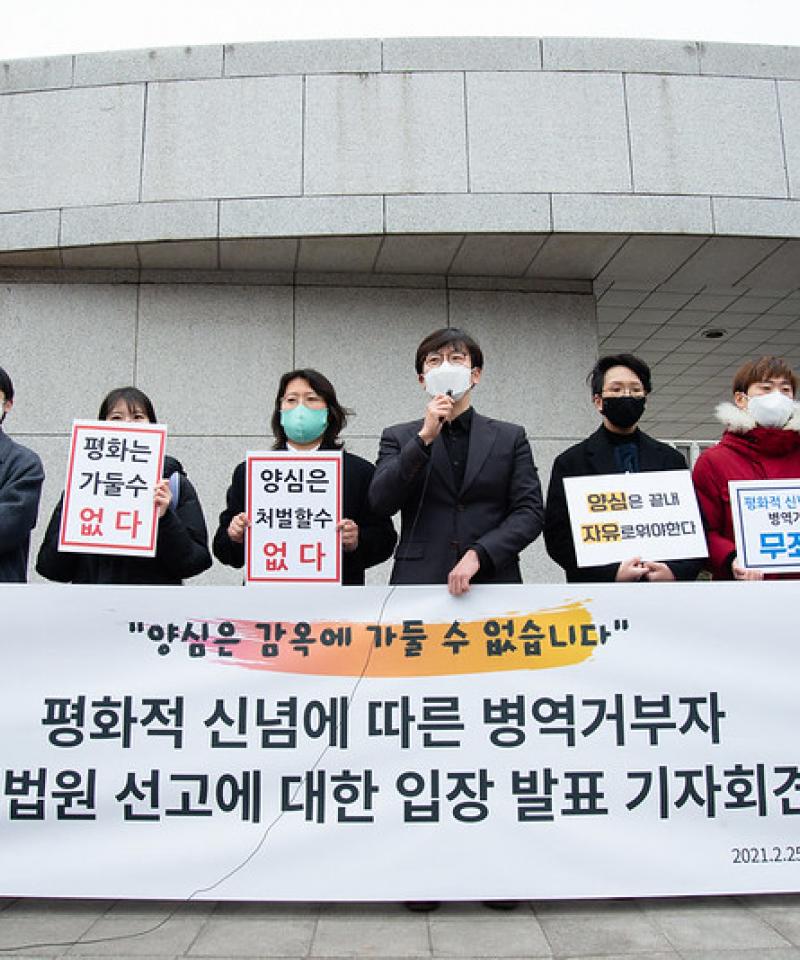South Korea: Conscientious objection on non-religious grounds recognised by Supreme Court and MMA first time

First time in South Korea, conscientious objection to military service on non-religious grounds is recognised by the country’s Supreme Court and Military Manpower Administration (MMA).
On February 24, South Korean media reported that the MMA, the government body which oversees conscription, conscientious objection and alternative service, approved two applications for alternative service on non-religious grounds. World without War, Seoul based campaigning group for conscientious objectors (COs), informed WRI that the decisions were actually made in January, although it took place on news in February.
World without War also reported that one of the two COs was a reservist who applied for alternative service to refuse reserve duty. In South Korea, after completing their mandatory military service, men are also obliged to go through a reserve duty. It includes a training session of one to three days per year for six years.
The two cases are important because it’s the first time the MMA has approved the applications for alternative service on non-religious grounds. Prior to the two COs, 942 Jehovah's Witnesses have passed the screening of the Alternative Service Commission (supervised by the MMA). This included COs refusing reserve service as well as the military service.
As reported by the Korean Herald, there are in total of 2,052 objectors who applied for alternative service by 24th February 2021. Only 944 of those have gained approval and 942 of them are conscientious objectors refusing on religious grounds.
Supreme Court recognised conscientious objection on non-religious grounds
On 25th February, another significant development took place: For the first time, the Supreme Court of South Korea has recognised the conscientious objection of a reservist whose refusal was based on personal beliefs, not on religious grounds. In its decision, the Court has upheld a lower court's acquittal of the reservist charged with refusing to complete his mandatory reservist duty for nonreligious reasons.
As reported by Yonhap News Agency, the Supreme Court said, "Even if a conscientious objector refuses to perform reserve forces training based on ethical, moral or philosophical beliefs other than religious beliefs, it should be regarded as a legitimate reason of rejection stipulated by the reserve forces law."
Two COs’ sentences approved by the Supreme Court
Unfortunately though, on the same day, the Supreme Court has confirmed the sentences of two other conscientious objectors whose refusal were also based on non-religious grounds. The court confirmed lower courts’ sentence of one and a half years in prison each for the two other conscientious objectors, stating that their beliefs cannot be seen as genuine. WRI has been informed that the two COs have been jailed last week following the Supreme Court’s decision on 25th February.
Constitutional Court dismissed a petition on reserve service
Also on the same day, the other high court of South Korea, the Constitutional Court, dismissed a petition about the law which penalizes those refusing reserve forces training without justifiable reasons. The petition, filed by a man who refuses to take part in reserve forces training after completing his military duty as skilled industrial personnel, alleged that the law violates the freedom of conscience.
As reported by Yonhap News Agency, “the court noted there are already Supreme Court rulings on whether to punish conscientious objectors for rejecting reservist training, saying the petitioner can seek judgment from the top court on whether his case should be part of the conscientious objection case.”
In February, another appeal was filed to the Constitutional Court regarding conscientious objection which hasn’t been assessed by the Court yet. The appeal, filed by a conscientious objector who is currently performing his alternative service as prison staff, was made on grounds that the alternative military service law is unconstitutional due to its punitive nature. You can find more information about the appeal here.
Add new comment